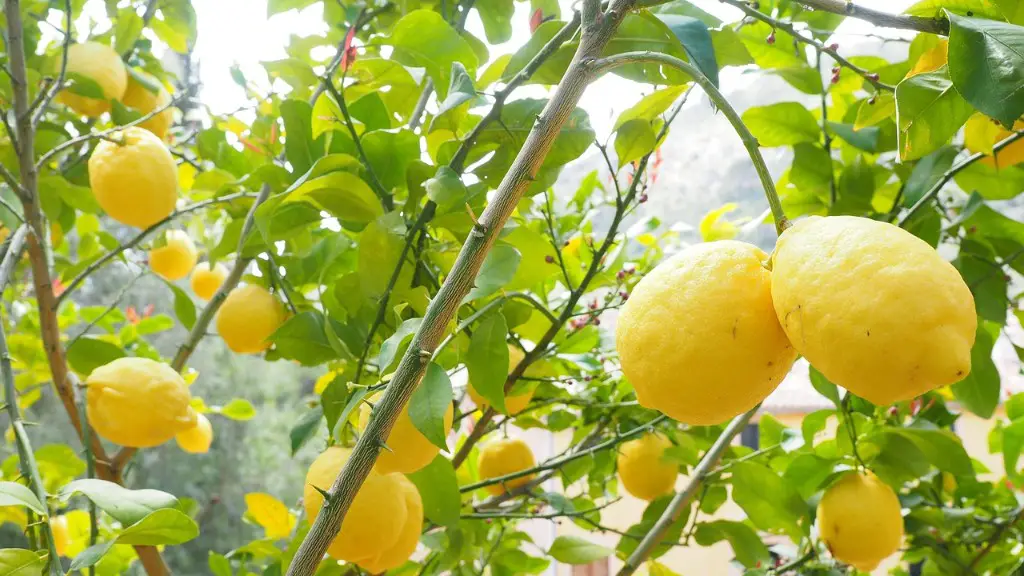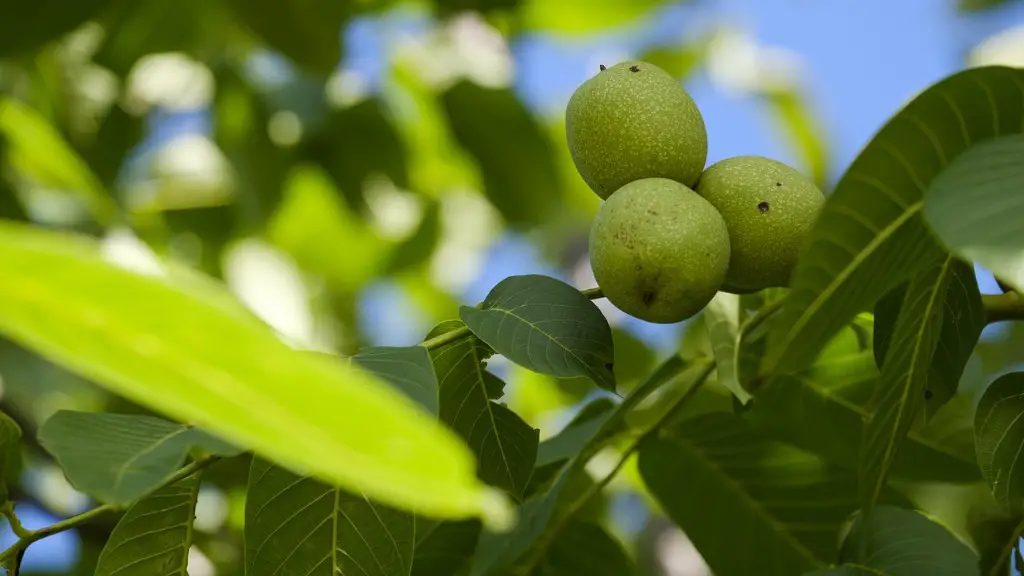Will a lemon ripen off the tree? The answer is yes, though it may not be as sweet as one that is left on the tree and allowed to fully ripen. Rather than ripening naturally, off-the-tree lemons are picked before they are fully ripe. To simulate ripening, lemons can be left at room temperature for two or three days. This encourages the natural production of ethylene gas and triggers ripening.
Skin color is usually the first to change, going from bright green to a yellowy-green. Once the lemon is yellow, it should be ripe enough to be eaten or used in a recipe. It may even have a warmer, slightly more orange shade, though this isn’t always a sign of ripeness.Touch the lemon to feel for softness. As a lemon ripens, it gets slightly softer and the skin may flatten slightly.
The best way to tell is to give the lemon a light squeeze with your thumb and index finger. If it’s still too firm, let it sit for a few more days before you check again. As with tropical fruit, the heavier the lemon, the riper it is. Smell the lemon to tell whether it’s ripe or not. A ripe lemon should have a definite lemon scent, while an unripe one will not be fragrant.
Chefs, dessert-makers and lemonade aficionados can also benefit from the knowledge of how to ripen lemons off the tree. This fruit, though it is tart and acidic, is still a key ingredient in many food and beverage recipes. Lemons can be pickled, added to salads or cooked into various desserts when they are not at their peak but ripening them makes them useful in other dishes.
To help keep your lemons in great condition after picking, place them in the refrigerator for up to two weeks. Lemons stored in the refrigerator will look plumper and have healthy skin, but avoid putting the lemons in the vegetable crisper. Humidity is not kind to lemons, so always store them in the refrigerator in a breathable storage container.
Ripe lemons can be frozen for later use, so if you have an abundance, freeze them for up to three months for use in sauces, desserts, drinks and more. Simply finely grate and add the lemons to ice cube trays or zipper freezer bags and freeze until needed.
If you’re in the habit of buying lemons, choosing the right ones is important. To pick out a ripe lemon, simply look for ones that are thin-skinned, heavy and vibrant a color. When you lightly press your thumb into the peel, it should give way just a bit, indicating ripeness.
Disadvantages of Ripe Lemons Off the Tree
Ripe lemons off the tree can have some disadvantages. Unripe fruits are a lot easier to store and transport than ripe ones. Unripe lemons are also more versatile because they can be used for a number of recipes from sauces to dessert. By leaving lemons off the tree, it can also be difficult to estimate when the lemons are going to be at their peak for eating.
By leaving lemons off the tree, the fruits can also ripen faster than usual as the ethylene gas will create a natural ripening process. This can cause the lemons to become rubbery and soft very quickly which can render them inedible. Moreover, the sour lemon flavor will start to become sweeter the longer they are left off the tree, which can create an unexpected taste in dishes.
As well as reducing their shelf life, lemons off the tree can also fill your kitchen with an unpleasant smell. As the lemons ripen off the tree, they will start to emit a pungent odor. In addition, due to the accelerated ripening process, off-the-tree lemons are weaker and more perishable than those that are allowed to ripen on the tree, making them more susceptible to bruising.
Health Benefits of Ripe Lemons off the Tree
Lemons are a great source of vitamins and minerals. They are packed with vitamin C, an antioxidant that can help the body fight against diseases. Vitamin C is also great for supporting the immune system and keeping your skin healthy.
Lemons are also high in other vitamins and minerals like potassium, magnesium, calcium, zinc and iron which can help boost physical health. They are also an excellent source of dietary fiber, making them helpful for digestive health and for maintaining a healthy weight.
Lemons are also incredibly nutritious and are known for their many benefits. For example, they can help prevent constipation, reduce cholesterol levels, lower blood pressure, improve iron absorption, reduce the risk of heart disease, and protect against the formation of kidney and bladder stones.
Lemons are also thought to have anti-inflammatory properties, which can help to protect against conditions such as arthritis, asthma, and eczema. Drinking water with fresh squeezed lemon juice can help to support your immune system and detoxify the digestive system. Lemons are also believed to help boost mood and energy levels, as well as combat chronic fatigue.
How to Preserve Ripe Lemons Off the Tree
Preserving lemons off the tree is a great way to make sure they don’t go bad quickly. The simplest way to do this is to freeze them. To preserve lemons off the tree, cut them into wedges or slices and spread them out on a baking sheet. Place the baking sheet in the freezer and freeze the lemons for 2 to 3 hours. Once they are frozen, transfer them to an airtight container or resealable bag. The lemons can be stored for up to 3 months in the freezer.
You can also preserve lemons by making a simple syrup. To do this, combine one cup of boiling water with one cup of sugar in a saucepan and stir until the sugar is dissolved. Then, add the lemons slices to the syrup and simmer for about 5 minutes. Finally, transfer the lemons and syrup to a jar and seal it with an airtight lid. The lemons can be stored in the refrigerator for up to 3 months.
When preserving lemons off the tree, keep in mind that they won’t be as tasty when than when eaten fresh. If you want to enjoy the full flavor of lemons, it’s best to buy them in season and use them as soon as possible. However, by preserving them, you can extend their life and make sure they are always on hand when you need them.
Nutritional Value of Lemons Off the Tree
Lemons are nutritionally dense, with a single lemon containing high levels of fiber, vitamin C, vitamin B6, potassium, and folate. An average lemon contains about three grams of fiber, 34 milligrams of vitamin C, and 14 micrograms of folate. Lemons are also rich in other vitamins and minerals, such as calcium, magnesium, vitamin A, and vitamin E. They are low in calories, fat, and sodium and have no cholesterol.
Lemons are known for their power to increase the absorption of other nutrients. For example, the vitamin C contained in lemons can help the body to absorb iron from plant foods such as leafy greens more effectively. In addition, the citric acid contained in lemons can also help to boost the immune system.
As well as helping the body to absorb other nutrients, lemons are known for their ability to regulate blood sugar levels. Studies have shown that lemons can help to reduce blood sugar spikes after meals and lower the risk of diabetes. Lemons are also used in traditional medicine to help treat a range of ailments, including constipation and diarrhoea.
Uses of Ripe Lemons Off the Tree
Organic lemons are a versatile and delicious kitchen staple, so having ripe lemons off the tree on hand is always a great idea. Lemons can be used in a variety of dishes, both sweet and savory. They can add a pleasant, tart flavor to everything from salads to cakes. Lemons can also be used to make lemonade, salad dressings, and marinades.
Ripe lemons off the tree can also be used for medicinal purposes. In traditional medicine, lemons have been used to treat a range of ailments, including digestive issues, upset stomach, headaches, and even nausea. Lemon juice can also be used as an alternative to store-bought cleaning products, as it is a natural disinfectant.
Ripe lemons off the tree can also be used as a natural beauty product. Lemon juice can be used as an exfoliator, to reduce dark spots, and to make a clarifying face mask. It can also help to even out skin tone, brighten complexion, and treat oily skin. Lemons can also be mixed with honey and used as a hair mask to help promote hair growth and reduce dandruff.
Lemons can also be used to make non-edible items such as scented candles, decorative vases, potpourri, and diffusers. Lemons can also be used to make a variety of craft products, including cards, bracelets, and picture frames. The possibilities are truly endless!



